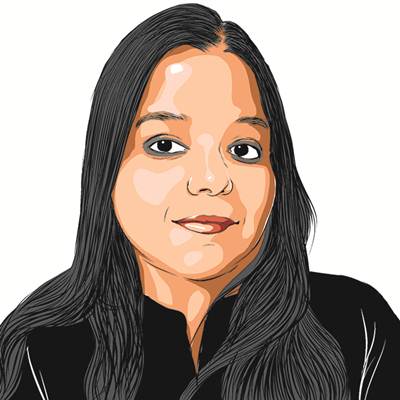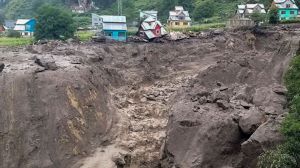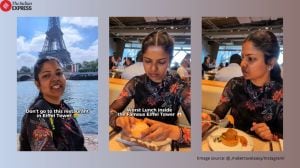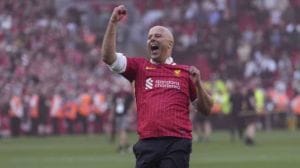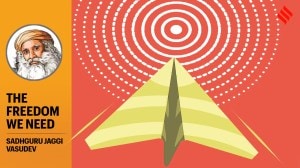

Prof Dr Harpal Singh Selhi, Prof & Unit Head, Orthopaedics, Incharge Surgical Emergency, DMCH, Ludhiana
One fateful morning, a distressing call about a train accident near Khanna changed everything. As part of an emergency medical team, I rushed to the scene. Amidst the chaos, a poignant moment stood out: rescuing a trapped Army Colonel stuck between collapsed berths in an AC sleeper coach. He was on a mission to immerse his mother’s ashes.
Story continues below this ad
With no access to the compartment, we broke open the glass and worked tirelessly with locals, using vehicle jacks to free him. Despite the challenges, we provided crucial first aid and IV support inside the wagon. Though his lower limb was lost to crush syndrome, our team’s efforts saved his life.
This harrowing experience reaffirmed the importance of swift medical response and compassion in the face of adversity. That moment remains the defining point of my career. Timely care—whenever, wherever and however—is the key.
“Truth must outlive death. My most defining moment occurred in a mortuary”

Dr Charan Kamal Ladhar, MBBS, MD (Forensic Medicine) Assistant Chemical Examiner, Punjab
The most defining moment of my medical career did not occur in an operating theatre or clinic. It unfolded in the quiet, dimly lit confines of a mortuary.
A young woman’s charred body lay before me. Initial reports suggested death by self-immolation, a presumed suicide. However, a single glance at the injuries and the ligature mark on her neck, along with internal findings, immediately raised red flags.
Story continues below this ad
Despite pressure to finalise the case as suicide quickly, I stood by professional integrity. I remained after hours, meticulously re-examined the neck and cervical structures, ensured the viscera was preserved without contamination, and documented every forensic detail with precision.
The findings confirmed asphyxia due to strangulation and revealed a deliberate attempt to destroy evidence through fire. The suicide theory was discredited. My postmortem report became pivotal in initiating the criminal investigation, securing the arrest of the accused, and was appreciated by the National Commission for Women.
In that moment, I was not merely a physician, I became a custodian of truth, giving voice to the voiceless.
Mortuaries do not resound with applause, yet that cold slab became the most sacred courtroom of truth I have ever known. This Doctor’s Day, I remember her and all the dead I have examined, not as statistics or case numbers, but as solemn reminders of the promise I made to this profession.
“After kidney transplant, my patient came to me with a job offer letter”

Story continues below this ad
Dr Ankur Chaudhary, DM Nephrology (PGIMER, Chandigarh) Consultant Nephrologist, District Hospital, Mohali
As a nephrologist, I often meet patients at their most vulnerable—facing lifelong dialysis, chronic illness, or the anxiety of a transplant. One of the most defining moments in my career came when a young man, newly diagnosed with kidney failure, broke down during our first consultation.
He had lost all hope. Over the next year, we worked closely, optimising his care, preparing him for transplant, and supporting him emotionally. He eventually underwent a successful transplant.
The day he returned with a job offer letter in one hand and a box of sweets in the other, I felt the true impact of our work—not just extending life, but restoring dignity and purpose. That moment reminded me that nephrology is not just about treating kidneys, it’s about rebuilding lives.
“A miraculous new life: Baby survives against all odds at our hospital”

Dr Indermanjot Singh, Paediatrician, Civil Hospital, Sangrur
Story continues below this ad
A newborn baby girl made a stunning recovery after a high-risk emergency C-section involving cord prolapse and thick meconium-stained liquor—complications that often lead to intrauterine demise.
She was born cyanosed, limp, and without tone. The team feared the worst. But at the resuscitation table, a single gasp prompted immediate bag-and-mask ventilation while intubation was prepared. Thick meconium was suctioned from the airway.
Then, a miracle—she began breathing spontaneously and let out a strong, healthy cry. She was shifted to the Special Newborn Care Unit (SNCU), where she continued to recover and is now healthy in her mother’s arms.
This experience reaffirmed our faith in the power of medical intervention and the fighting spirit of baby girls, who often prove to be incredible survivors.
“Doctor heals, God saves”

Dr Jaspreet Bedi, Eye Surgeon, Civil Hospital, Fatehgarh Sahib
Every patient is unique, but one stands out, a young boy with Down syndrome and mature bilateral cataracts. The condition compounded his physical and mental challenges, and the surgery was difficult to perform under local anaesthesia.
After the procedure, the boy returned with a beaming smile to shake my hand. He later came back for thesecond surgery with greater confidence. His joy, his renewed ability to see the world—these are the moments that fill a surgeon’s heart with humility and gratitude. As they say, “A surgeon thrives on his patient’s smile.”
“Being a doctor is not just a career but a calling”

Story continues below this ad
Dr Harpreet Singh Gill, Orthopaedic & Joint Replacement Surgeon, Ludhiana, Post-Doc Fellow, Johns Hopkins University, USA
Orthopaedics allows me to restore mobility, relieve pain, and improve lives. Over the years, I’ve operated on my teachers, family, friends, and well-known personalities.
But one moment stands out. On World Arthritis Day, my hospital invited patients I had operated on for an interactive session. Over lunch, they met my wife and sons.
One patient told them, “Jado savere Rabb da shukrana kardi haan, meri ardaas vich Dr Gill jaroor hunda hai. Stay blessed.” (When I say my morning prayers, Dr Gill is always a part of them). That moment reaffirmed that this profession is not just about skill, it’s about empathy, trust, and human connection.
Story continues below this ad
“Managing limited vaccine supply was a challenge”

Dr Seema Garg, District Immunisation Officer, Hoshiarpur
On January 1, 2021, amid the COVID-19 pandemic, I faced the daunting task of managing mass vaccination. With a limited vaccine supply and widespread hesitancy, I had to plan sessions meticulously, mobilise staff and resources, and handle hundreds of calls daily.
Our district consistently ranked among the top three in Punjab. We were the first to have over 1,000 villages fully vaccinated. A high point came on July 3, 2021, when we administered over 78,000 doses in a single day, a record feat.
Though I was selected for the Punjab State Parman Patra award, a change in government meant it was never conferred. Still, I have no regrets. I served with honesty, determination, and a sense of duty.









